
Ha'apai: The Hidden Gem of Tonga
Ha'apai, a stunning archipelago in the heart of Tonga, is a paradise waiting to be explored. Comprising over 60 islands, Ha'apai offers a tranquil escape from the hustle and bustle of city life. The islands are known for their pristine beaches, crystal-clear waters, and vibrant coral reefs, making it a haven for snorkelers and divers alike. The main island, Lifuka, is where most visitors begin their journey. Here, you can immerse yourself in the local culture by visiting traditional Tongan villages, where you’ll find warm hospitality and rich cultural practices. The island also offers opportunities for whale watching, especially from July to October when humpback whales migrate to the warm Tongan waters to give birth. For the adventurous, Ha'apai offers a range of activities including kayaking, sailing, and hiking. The unspoiled natural beauty of the islands is perfect for those looking to reconnect with nature. Don’t miss the chance to explore the remote islands of Uoleva and ‘Uiha, where you can experience untouched beaches and serene landscapes. Ha'apai is not just about natural beauty; it also has historical significance. The islands have a storied past, including being the site of Captain Cook's landing in the 18th century. A visit to Ha'apai offers a unique blend of relaxation, adventure, and a deep dive into Tongan history and culture.
Local tips in Ha'apai
- Best time to visit is between May and October for dry weather and whale watching.
- Local currency is the Tongan Paʻanga (TOP). Make sure to have enough cash, as ATMs can be scarce.
- Respect local customs and dress modestly, especially when visiting villages.
- Try the local cuisine, including fresh seafood and traditional Tongan dishes like 'Ota 'ika (raw fish salad).
- Consider booking tours and activities in advance, especially during peak season.
Ha'apai: The Hidden Gem of Tonga
Ha'apai, a stunning archipelago in the heart of Tonga, is a paradise waiting to be explored. Comprising over 60 islands, Ha'apai offers a tranquil escape from the hustle and bustle of city life. The islands are known for their pristine beaches, crystal-clear waters, and vibrant coral reefs, making it a haven for snorkelers and divers alike. The main island, Lifuka, is where most visitors begin their journey. Here, you can immerse yourself in the local culture by visiting traditional Tongan villages, where you’ll find warm hospitality and rich cultural practices. The island also offers opportunities for whale watching, especially from July to October when humpback whales migrate to the warm Tongan waters to give birth. For the adventurous, Ha'apai offers a range of activities including kayaking, sailing, and hiking. The unspoiled natural beauty of the islands is perfect for those looking to reconnect with nature. Don’t miss the chance to explore the remote islands of Uoleva and ‘Uiha, where you can experience untouched beaches and serene landscapes. Ha'apai is not just about natural beauty; it also has historical significance. The islands have a storied past, including being the site of Captain Cook's landing in the 18th century. A visit to Ha'apai offers a unique blend of relaxation, adventure, and a deep dive into Tongan history and culture.
When is the best time to go to Ha'apai?
Iconic landmarks you can’t miss
Mapu'a Vaea Blowholes
Experience the breathtaking displays of nature at Mapu'a Vaea Blowholes in Tonga, a must-visit destination for nature lovers and adventure seekers.
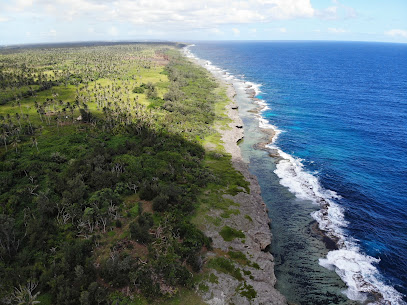
Royal Palace of Tonga
Explore the Royal Palace of Tonga: A majestic historical site showcasing the rich heritage of Tongan royalty amidst stunning architecture and lush gardens.
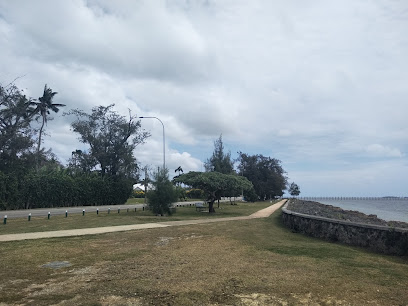
Anahulu Cave
Explore the breathtaking Anahulu Cave in Tonga, a natural wonder featuring stunning limestone formations and crystal-clear waters for a unique adventure.
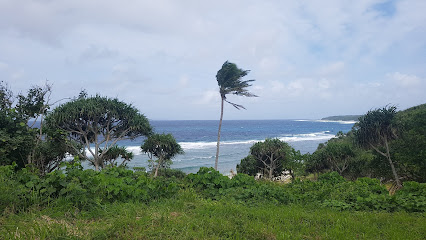
Royal Tombs
Explore Tonga's rich heritage at the Royal Tombs in Nuku'alofa, a serene historical landmark honoring the legacy of the Tongan monarchy.
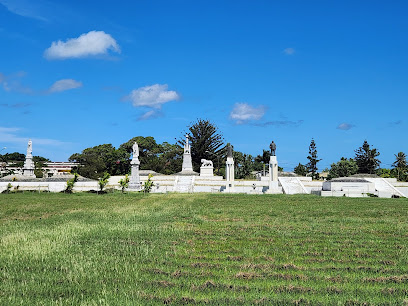
Tsunami Rock
Discover the breathtaking beauty and historical significance of Tsunami Rock in Kala'au, Tonga - a must-visit natural landmark for every traveler.
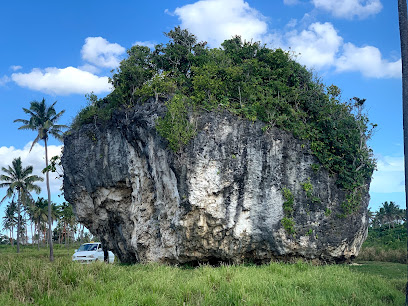
Ancient Tonga
Unveil the rich history and natural beauty of Ancient Tonga, where ancient sites meet vibrant culture in a stunning island paradise.
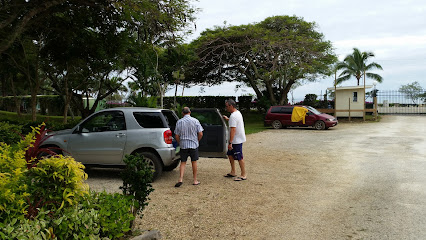
'Oholei Beach Resort
'Oholei Beach Resort: A tranquil escape in Lavengatonga, where luxury meets Tongan culture and stunning ocean views await every traveler.
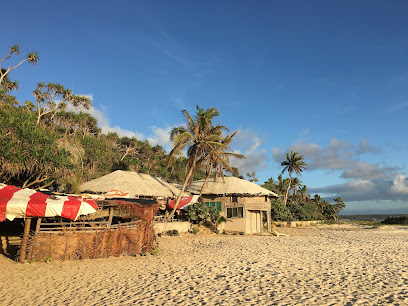
Ha'amonga 'a Maui Trilithon
Explore the majestic Ha'amonga 'a Maui Trilithon, a historical landmark that embodies Tongan culture and ancient Polynesian architecture.
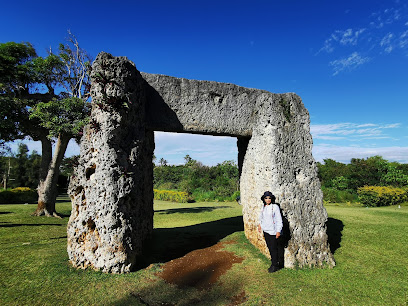
House of Tonga
Experience the best of Tongatapu with the House of Tonga – your ideal hotel, tour agency, and cultural hub in Nuku'alofa.
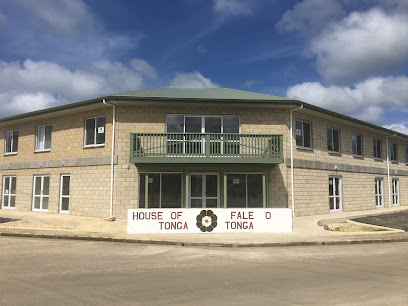
Ha'atafu Beach
Experience the tranquil beauty of Ha'atafu Beach in Tonga, a perfect destination for relaxation, swimming, and unforgettable sunsets.
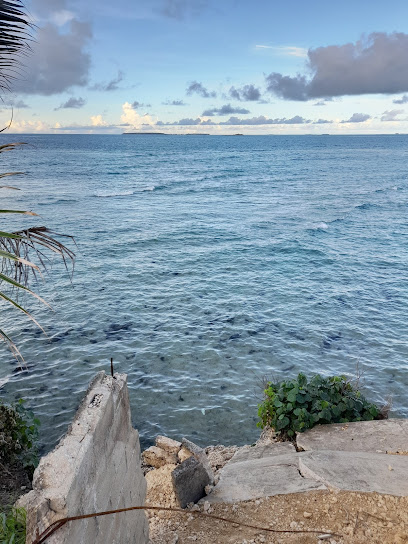
Captain Cook Landing Site
Explore the Captain Cook Landing Site in Alaki, Tonga, and delve into the rich maritime history of the Pacific and its cultural significance.
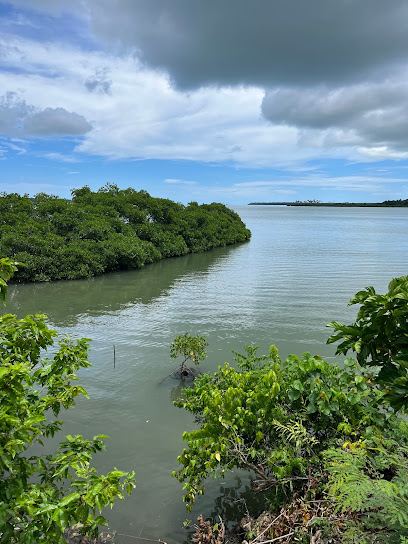
Blue Water Retreat
Experience the ultimate escape at Blue Water Retreat, where luxury meets traditional Tongan hospitality in the heart of Tufuvai.
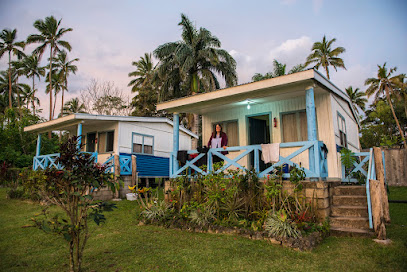
Paepae o Tele'a
Explore the historical depth and beauty of Paepae o Tele'a, a significant cultural landmark in Tonga's rich heritage.
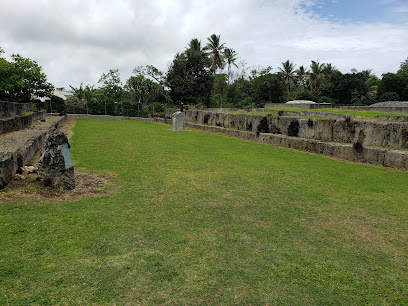
Tonga National Museum
Explore the rich cultural tapestry of Tonga at the National Museum, where history, art, and tradition come alive in Nuku'alofa.
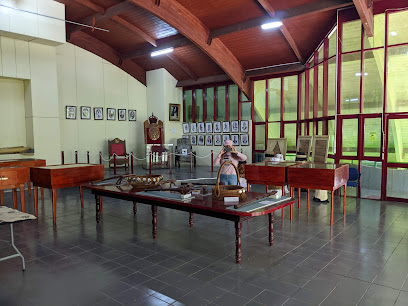
Maka Fa'akinanga
Explore Maka Fa'akinanga, a stunning historical landmark in Niutoua, Tonga, where culture and nature beautifully intertwine.
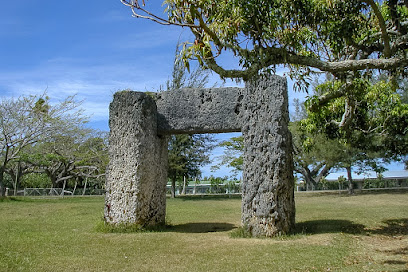
Unmissable attractions to see
Mapu'a Vaea Blowholes
Discover the breathtaking Mapu'a Vaea Blowholes, where the ocean's power meets stunning natural beauty in the heart of Tonga.
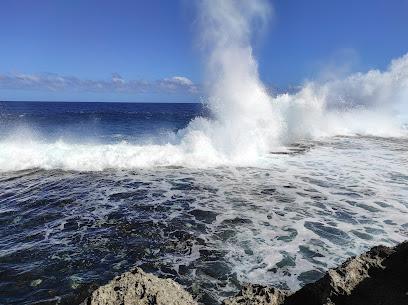
Anahulu Cave
Discover the enchanting Anahulu Cave in Haveluliku, a geological marvel filled with history, beauty, and cultural significance.
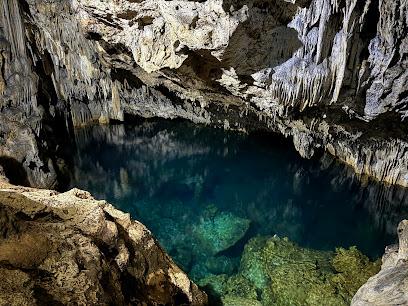
Royal Palace Of Tonga
Explore Tonga's historical treasures at the Royal Palace, a stunning blend of culture, architecture, and heritage in Nuku'alofa.
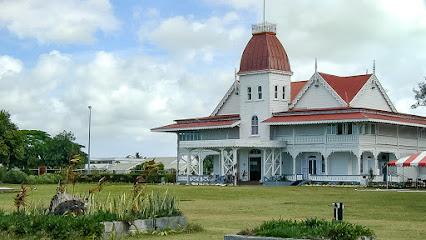
Royal Tombs
Explore the Royal Tombs in Nuku'alofa, Tonga - a historical landmark showcasing the deep-rooted royal heritage of this majestic island nation.
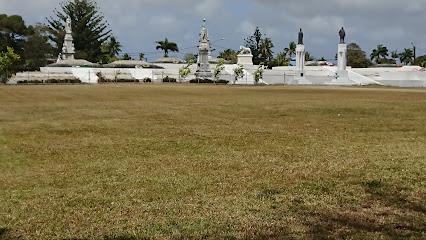
3 Headed Coconut
Experience the enchanting beauty of the 3 Headed Coconut in Matahau, Tonga - a unique natural wonder and cultural gem awaiting your discovery.
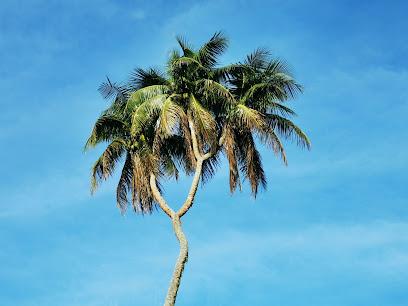
Fafa Island
Escape to Fafa Island, a stunning Tongan paradise known for its pristine beaches, vibrant coral reefs, and rich cultural experiences, perfect for all travelers.
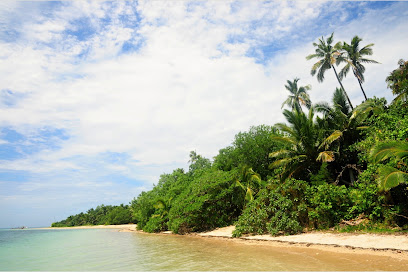
Ha'atafu Beach
Experience the captivating beauty of Ha'atafu Beach, a tropical paradise in Tonga known for its serene waters and vibrant marine life.
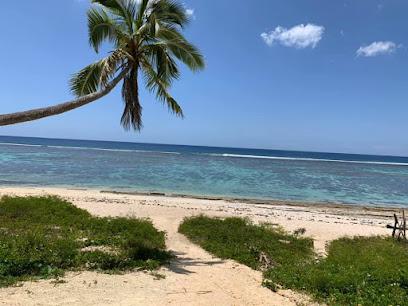
Captain Cook Landing Site
Explore the legacy of exploration at Captain Cook Landing Site in Alaki, Tonga, where history and breathtaking natural beauty meet.
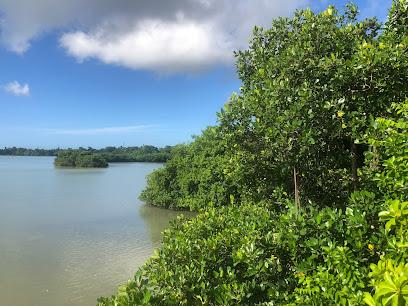
Pangaimotu Island
Experience the serene beauty and vibrant marine life of Pangaimotu Island - Tonga's hidden paradise for relaxation and adventure.
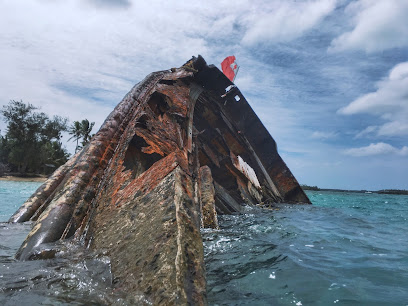
Mounu Island
Explore Mounu Island, Tonga: a tranquil paradise boasting pristine beaches, vibrant marine life, and lush landscapes perfect for relaxation and adventure.

Teta Tours
Explore the best of Tonga with Teta Tours, your ultimate travel companion for unforgettable adventures in Nuku'alofa.
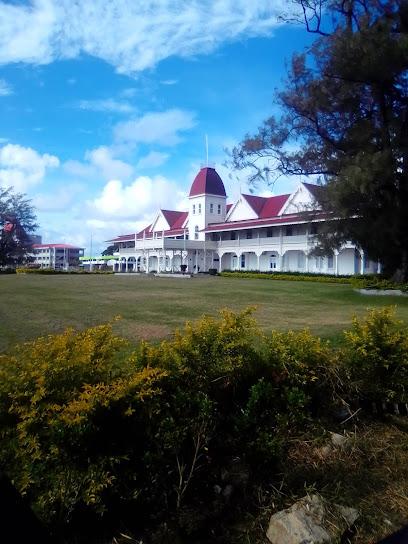
Fukave Island
Experience the untouched beauty of Fukave Island, a serene tropical paradise in Tonga, perfect for relaxation, adventure, and stunning marine life exploration.
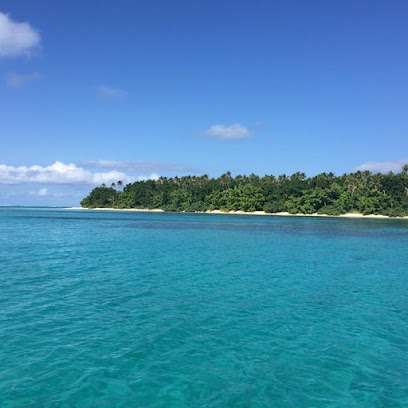
Talamahu Market
Explore Nuku'alofa's Talamahu Market, a vibrant marketplace filled with fresh produce, local crafts, and authentic Tongan culture.
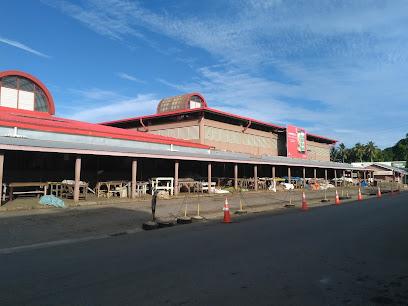
Essential places to dine
Little Italy Hotel
Discover the charm of Little Italy Hotel in Nuku'alofa - where authentic Italian cuisine meets warm Tongan hospitality.

Friends Cafe
Discover the essence of Tongan hospitality at Friends Cafe in Nuku'alofa - where every meal is a delightful experience.
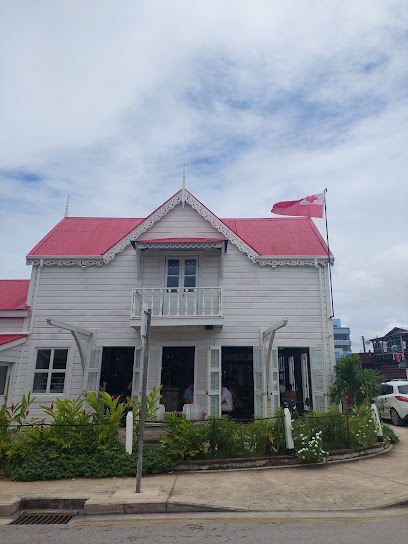
Cafe Escape
Discover authentic Tongan cuisine at Cafe Escape in Nuku'alofa - where every meal tells a story.
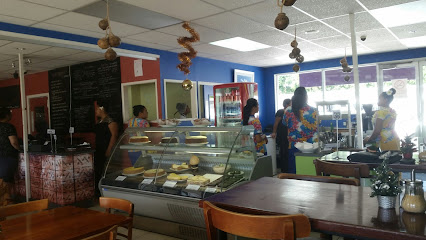
Chef Zero Restaurant
Experience authentic Tongan flavors at Chef Zero Restaurant in Nuku'alofa – where culinary creativity meets local tradition.
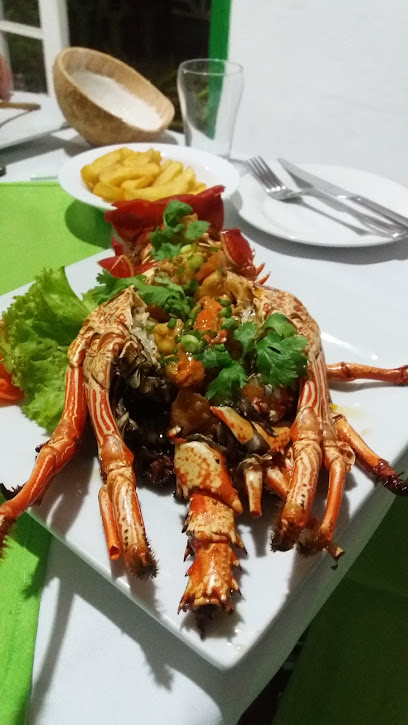
The TOP Restaurant and Lounge
Experience exquisite dining at The TOP Restaurant and Lounge in Nuku'alofa with stunning views and authentic Tongan cuisine.
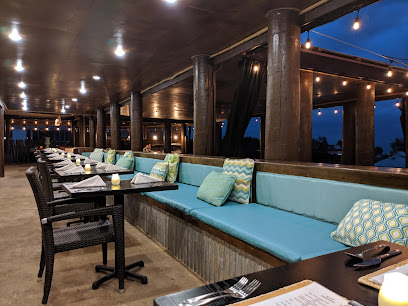
'Oholei Beach Resort
Experience paradise at 'Oholei Beach Resort in Tonga – where luxury meets nature amidst stunning beaches and rich cultural experiences.
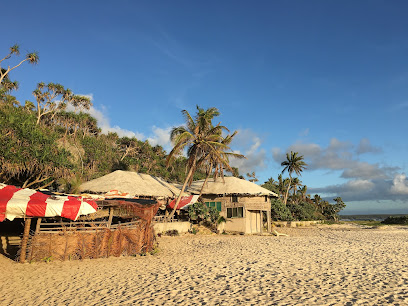
Young’s Kitchen
Experience authentic Tongan cuisine at Young's Kitchen in Nuku'alofa - a culinary journey full of flavor and warmth.
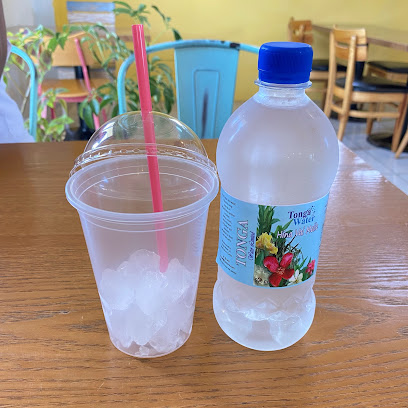
The Waterfront Cafe
Experience delightful local cuisine at The Waterfront Cafe in Nuku'alofa, where stunning ocean views meet warm Tongan hospitality.
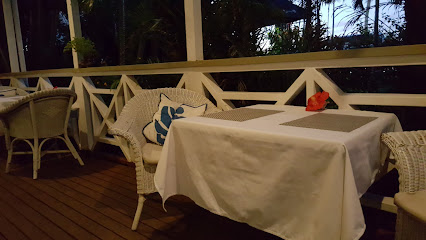
Frangipani - Korean Restaurant/Karaoke
Experience authentic Korean flavors and vibrant karaoke nights at Frangipani in Nuku'alofa – a must-visit culinary hotspot!
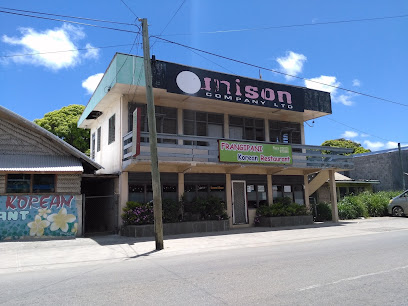
Nauti Ruby's Bar & Restaurant
Discover Nauti Ruby's Bar & Restaurant in Nuku'alofa – where delectable cuisine meets stunning ocean views for an unforgettable dining experience.
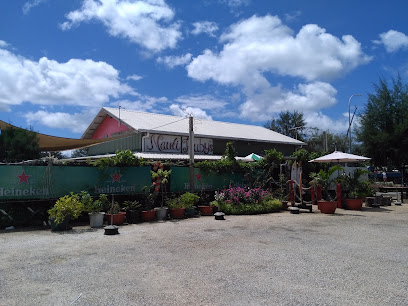
Sabrina's Chicken Vilovilo
Discover the rich flavors of Tongan barbecue at Sabrina's Chicken Vilovilo in Nuku'alofa—where every bite tells a story.
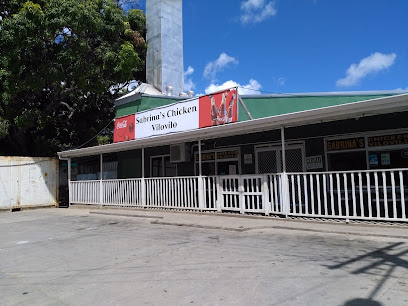
Moli Green Cafe
Discover Moli Green Cafe in Nuku'alofa: Your go-to destination for exceptional coffee experiences in Tonga's capital.
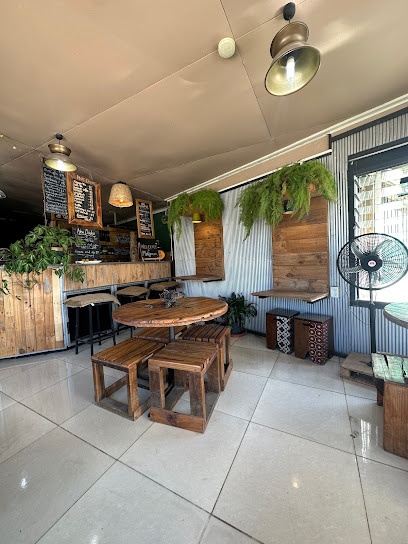
'Ofeina Restaurant
Discover the authentic flavors of Tonga at 'Ofeina Restaurant - a family-friendly dining experience that celebrates local cuisine.
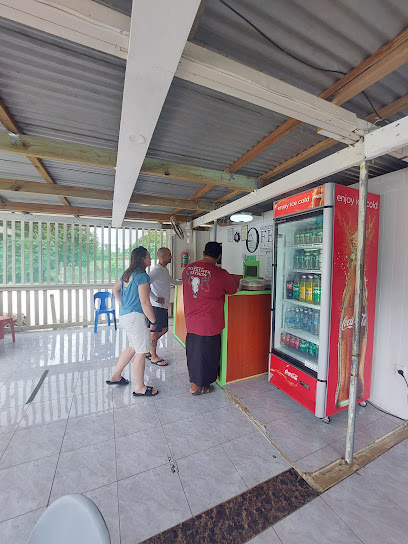
tiger inn
Experience authentic Tongan flavors at Tiger Inn - where culinary tradition meets warm hospitality in Nuku'alofa.
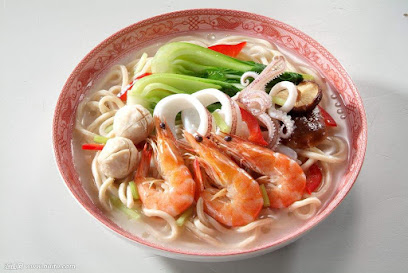
Davina House
Experience authentic Tongan cuisine at Davina House in Nuku'alofa - where every dish tells a story.

Markets, malls and hidden boutiques
Tanoa International Dateline Hotel
Experience comfort and Tongan hospitality at Tanoa International Dateline Hotel, your perfect base for exploring Nuku'alofa's beauty.

Ancient Tonga
Explore the rich culture and history of Tonga at Ancient Tonga, a must-see destination in Nuku'alofa for every traveler.
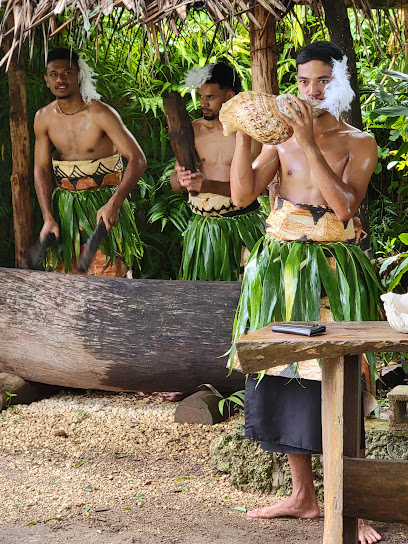
Talamahu Market
Discover the flavors and crafts of Tonga at Talamahu Market, a must-visit fresh food market in Nuku'alofa.
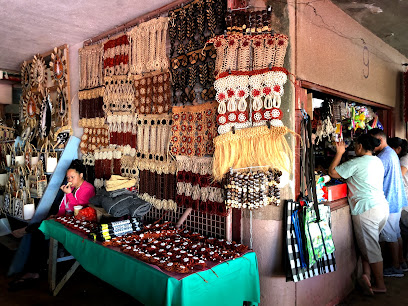
Vuna Wharf
Discover the beauty and local charm of Vuna Wharf in Nuku'alofa, Tonga, your gateway to stunning ocean views and vibrant island culture.
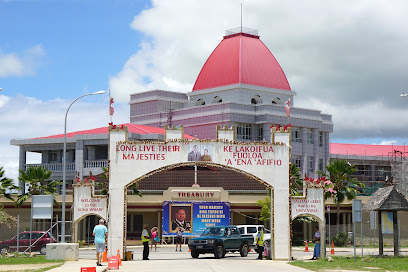
Winnies Bed & Breakfast
Experience the heart of Tonga at Winnies Bed & Breakfast, your cozy retreat in Nuku'alofa with warm hospitality and local charm.

Costlow Supermarket
Discover authentic Tongan flavors and local products at Costlow Supermarket, Pea’s premier shopping destination for tourists.
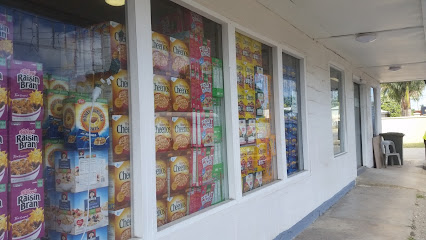
Hiki 'O Tonga
Discover unique local crafts and international brands at Hiki 'O Tonga, the premier shopping destination in Nuku'alofa, Tonga.
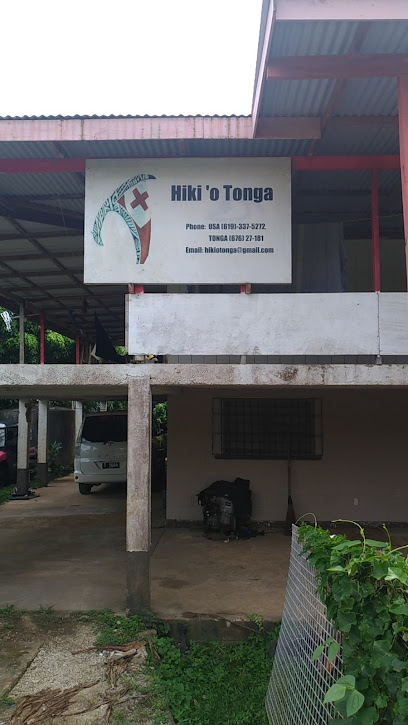
EZ TONGA ONLINE SHOPPING
Discover Tongan culture through EZ Tonga Online Shopping, your premiere destination for authentic local goods and souvenirs.

Langafonua Handicraft Centre and Gallery
Explore Tongan culture through exquisite handicrafts and art at Langafonua Handicraft Centre and Gallery in Nuku'alofa, Tonga.
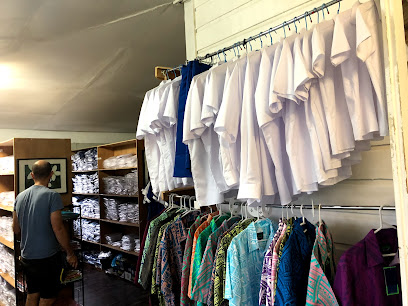
Friendly Island Bookshop
Discover the heart of Tongan literature at Friendly Island Bookshop, your gateway to the stories and culture of the Friendly Islands.
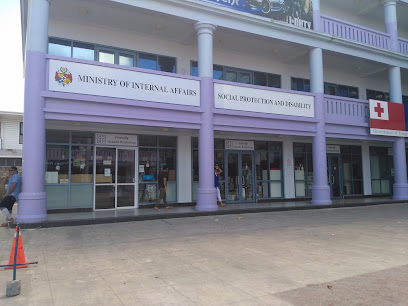
Leiola
Explore the vibrant Leipola Beer Store in Nuku'alofa, where local brews meet international flavors for an unforgettable tasting experience.
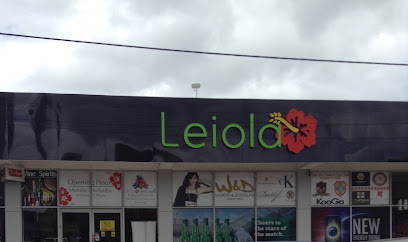
Fakafeta'i Store
Experience authentic Tongan hospitality at Fakafeta'i Store, your go-to general store in Nuku'alofa for local products and friendly service.
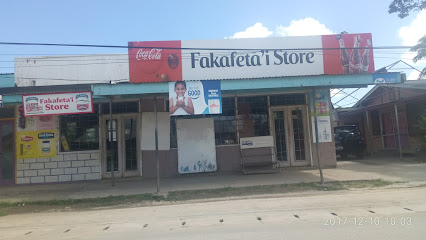
'Amanaki Lelei store
Experience authentic Tongan shopping at Amanaki Lelei Store, your local destination for unique crafts and souvenirs in Veitongo.
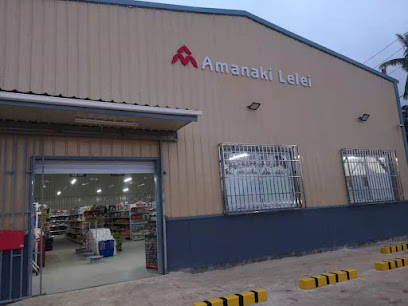
Le-Ata Tonga
Discover the vibrant Tongan culture through unique fashion at Le-Ata Tonga, the boutique in Nuku'alofa for authentic clothing and accessories.
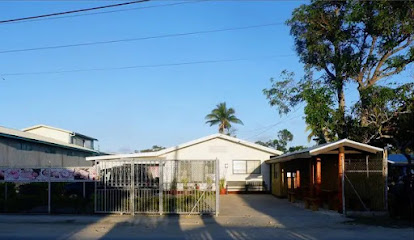
Hiki Store
Explore the unique world of confiscated goods at Hiki Store in Nuku'alofa, where every item has a story and reflects Tonga's vibrant culture.

Essential bars & hidden hideouts
Tanoa International Dateline Hotel
Discover the tropical charm and modern comforts of Tanoa International Dateline Hotel, your perfect retreat in Nuku'alofa, Tonga.

Little Italy Hotel
Experience the finest Italian cuisine blended with Tongan hospitality at Little Italy Hotel in the heart of Nuku'alofa.

Friends Cafe
Experience the vibrant flavors of Tonga at Friends Cafe, where local cuisine meets a welcoming atmosphere in the heart of Nuku'alofa.
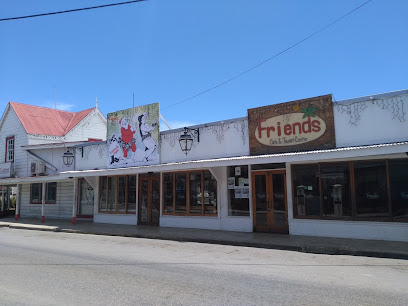
Billfish Bar and Restaurant
Experience the taste of Tonga at Billfish Bar and Restaurant, where local flavors meet Pacific charm in a warm and welcoming atmosphere.
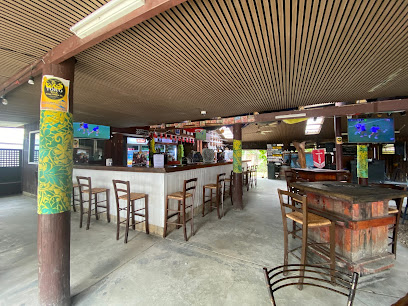
Seaview Lodge
Experience the tranquility of Seaview Lodge in Nuku'alofa, Tonga, where stunning ocean views meet cozy accommodations for the ultimate getaway.

The TOP Restaurant and Lounge
Discover the rich flavors of Tongan cuisine at The TOP Restaurant and Lounge, where stunning views meet a welcoming atmosphere.
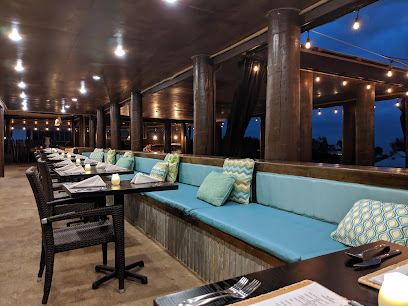
'Oholei Beach Resort
Experience the enchanting beauty of 'Oholei Beach Resort in Tonga, where luxury meets culture in a tropical paradise.
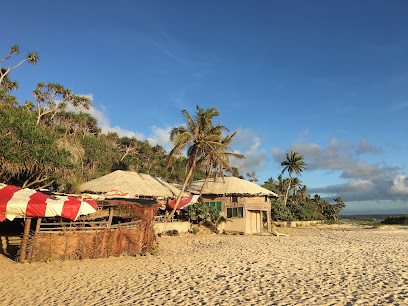
Vuna Wharf
Experience the enchanting beauty of Vuna Wharf in Nuku'alofa, where tranquility meets vibrant island culture amidst breathtaking coastal views.
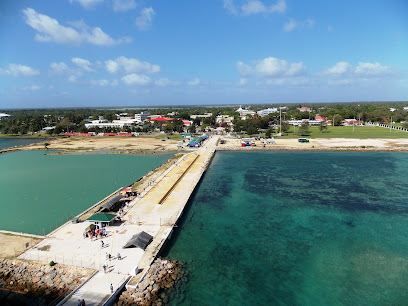
Vakaloa Beach Resort
Experience the serene beauty of Vakaloa Beach Resort, your perfect escape in Kanokupolu, where relaxation meets adventure in paradise.
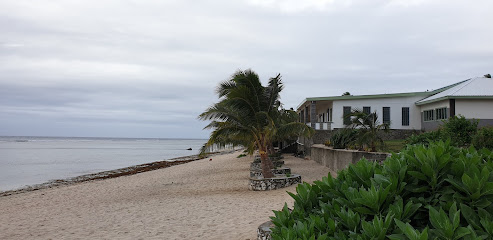
Lunarossa Deli
Explore local flavors at Lunarossa Deli, a delightful takeout restaurant in Nuku'alofa, where authentic Tongan cuisine meets international delights.
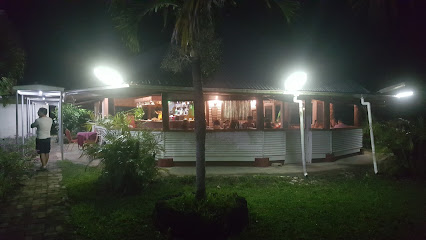
Costlow Supermarket
Discover local flavors and essentials at Costlow Supermarket in Pea, Tonga - a vibrant shopping hub for all your needs.
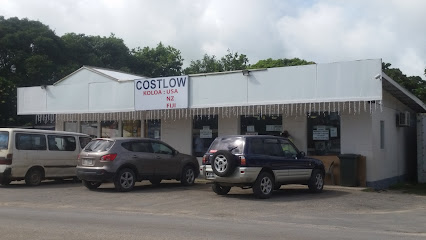
Happy Sailor Tattoo Tonga
Discover the essence of Tongan culture through stunning tattoos at Happy Sailor Tattoo Tonga, where art meets tradition.
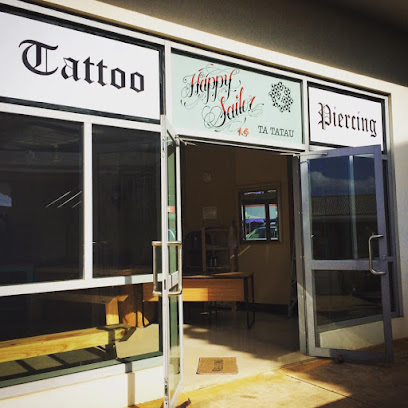
Sabrina's Chicken Vilovilo
Experience the authentic taste of Tongan barbecue at Sabrina's Chicken Vilovilo, a must-visit eatery in Nuku'alofa.
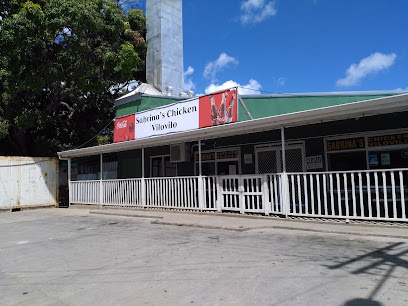
Nauti Ruby's Bar & Restaurant
Experience the vibrant ambiance and delicious flavors of Nauti Ruby's Bar & Restaurant, a coastal haven in Nuku'alofa, Tonga.
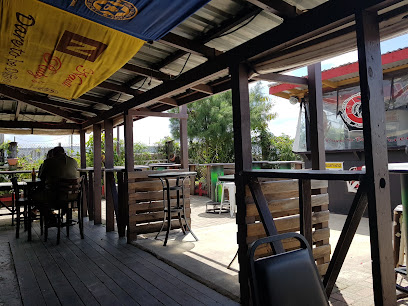
Local Phrases
-
- HelloMalo e lelei
[mah-loh eh leh-leh] - GoodbyeNofo a
[noh-foh ah] - YesIo
[ee-oh] - NoLe
[leh] - Please/You're welcomeFakamolemole
[fah-kah-moh-leh-moh-leh] - Thank youMalo
[mah-loh] - Excuse me/SorryFakamolemole
[fah-kah-moh-leh-moh-leh] - How are you?Ko e haʻu lahi?
[koh eh hah-oo lah-hee] - Fine. And you?Ola. Pe ʻo ha?
[oh-lah. peh oh hah] - Do you speak English?ʻOku ke fai ha lea ʻi ha lea ʻi hingoa ʻi ha lea?
[oh-koo keh fai hah leh-ah ee hah leh-ah ee hee-ngoh-ah ee hah leh-ah] - I don't understandTeke ʻalu 'a e fuofua
[teh-keh ah-loo ah eh foo-oh-foo-ah]
- HelloMalo e lelei
-
- I'd like to see the menu, pleaseʻOku ou fiema'u ke vakai ha meniu, fakamolemole
[oh-koo oh fee-mah-oo keh vah-kah-ee hah meh-nee-oo, fah-kah-moh-leh-moh-leh] - I don't eat meatTeke ʻalu 'i e me'a
[teh-keh ah-loo ee eh meh-ah] - Cheers!Fakafeiloaki
[fah-kah-fay-loh-ah-kee] - I would like to pay, pleaseʻOku ou fiema'u ke totongi, fakamolemole
[oh-koo oh fee-mah-oo keh toh-toh-gee, fah-kah-moh-leh-moh-leh]
- I'd like to see the menu, pleaseʻOku ou fiema'u ke vakai ha meniu, fakamolemole
-
- Help!Fesoasoani!
[feh-soh-ah-soh-ah-nee] - Go away!Foki atu!
[foh-kee ah-too] - Call the Police!Fonu 'o e Pulisī!
[foh-noo oh eh poo-lee-see] - Call a doctor!Fonu 'o e fōkā!
[foh-noo oh eh foh-kah] - I'm lostTeke ʻalu 'i he lea
[teh-keh ah-loo ee heh leh-ah] - I'm illTeke ʻalu 'i he mālohi
[teh-keh ah-loo ee heh mah-loh-hee]
- Help!Fesoasoani!
-
- I'd like to buy...ʻOku ou fiema'u ke fakaiki...
[oh-koo oh fee-mah-oo keh fah-kah-ee-kee] - I'm just lookingʻOku ou tāpuni
[oh-koo oh tah-poo-nee] - How much is it?Ko hai e fiha?
[koh hai eh fee-hah] - That's too expensiveKo e fu'u fu'u
[koh eh foo-oo foo-oo] - Can you lower the price?ʻE ke 'alu 'o e taʻu?
[eh keh ah-loo oh eh tah-oo]
- I'd like to buy...ʻOku ou fiema'u ke fakaiki...
-
- What time is it?Ko e 'aho pe?
[koh eh ah-hoh peh] - It's one o'clockKo e taha
[koh eh tah-hah] - Half past (10)Ngaahi teu
[ngah-ah-heh teh-oo] - MorningFōtusia
[foh-too-see-ah] - AfternoonApongipongi
[ah-pohng-ee-pohng-ee] - EveningPō
[poh] - YesterdayʻUluaki
[oo-loo-ah-kee] - TodayʻOtuangaʻane
[oh-too-ah-ngah-ah-neh] - TomorrowʻAho
[ah-hoh] - 1Taha
[tah-hah] - 2Ua
[oo-ah] - 3Tolu
[toh-loo] - 4Fa
[fah] - 5Nima
[nee-mah] - 6Ono
[oh-noh] - 7Fitu
[fee-too] - 8Valu
[vah-loo] - 9Hiva
[hee-vah] - 10ʻOno
[oh-noh]
- What time is it?Ko e 'aho pe?
-
- Where's a/the...?Ko fe...
[koh feh] - What's the address?Ko e tuhi e fika?
[koh eh too-hee eh fee-kah] - Can you show me (on the map)?ʻE ke fakaha mai au (ʻi he mapa)?
[eh keh fah-kah-hah mah-ee ow ee heh mah-pah] - When's the next (bus)?Ko e hingoa taha (paasi)?
[koh eh hee-ngoh-ah tah-hah pah-ah-see] - A ticket (to ....)ʻAtikite (ki ...)
[ah-tee-kee-teh kee]
- Where's a/the...?Ko fe...
History of Ha'apai
-
In 1774, the famous British explorer Captain James Cook arrived in Ha'apai during his second voyage to the Pacific. He anchored at Lifuka Island, part of the Ha'apai group, and was received with great hospitality by the local chief. Cook's arrival marked one of the first significant contacts between Europeans and the people of Ha'apai, leading to important cultural exchanges and documentation of the islands' rich traditions.
-
Uoleva Island, part of the Ha'apai group, is renowned for its spiritual significance among the Tongan people. Historically, Uoleva served as a retreat for Tongan royalty and was considered a sacred space for meditation and reflection. The island's pristine beaches and tranquil atmosphere continue to draw visitors seeking a deeper understanding of Tongan spirituality and history.
-
In the early 19th century, Methodist missionaries arrived in Ha'apai, introducing Christianity to the islands. One notable figure was Reverend Shirley Baker, who played a pivotal role in converting the local population. The introduction of Christianity had a profound impact on the social and cultural landscape of Ha'apai, influencing everything from education to governance.
-
The Ha'apai Uprising of 1852 was a significant event in Tongan history when local chiefs and warriors rebelled against the central authority of King George Tupou I. The conflict arose due to growing discontent with the king's reforms and centralization of power. The uprising was eventually quelled, but it underscored the tensions between traditional leadership structures and the newly established monarchy.
-
Ha'apai is globally renowned for its whale-watching opportunities. The islands play host to migrating humpback whales from July to October each year. Historically, these majestic creatures were hunted by the local population, but today they are protected and celebrated. Whale-watching has become a significant part of Ha'apai's cultural and economic activities, drawing visitors from around the world.
-
In January 2014, Cyclone Ian struck Ha'apai, causing widespread devastation. The Category 5 cyclone damaged homes, infrastructure, and farmlands, leaving a lasting impact on the community. The resilience of the Ha'apai people was evident in the aftermath, as they worked together to rebuild their lives and restore their islands. This event highlighted the vulnerability of Pacific island nations to natural disasters and the importance of community solidarity.
Ha'apai Essentials
-
Ha'apai is an island group in Tonga, accessible primarily by air and sea. The main gateway is Fua'amotu International Airport on Tongatapu, the country's largest island. From there, Real Tonga Airlines offers flights to Lifuka Island, the administrative center of Ha'apai. The flight takes approximately 40 minutes. Alternatively, a ferry service operates between Tongatapu and Ha'apai, with the journey taking around 12 hours. It is advisable to check the schedules in advance as both flight and ferry services can be irregular.
-
Ha'apai is relatively small, making it easy to explore on foot or by bicycle. Bicycles can be rented locally and are a popular way to get around. For longer distances, taxis are available, though they may need to be arranged in advance. There are no public buses on the islands, so pre-arrangement of transportation is often necessary for more extensive travel. Renting a scooter is another option for those comfortable with motorized two-wheeled transport.
-
The official currency of Tonga is the Tongan Pa'anga (TOP). Credit cards are accepted at some hotels and larger businesses, but cash is widely preferred, especially in smaller establishments and for everyday transactions. ATMs are available on Lifuka Island but may not always be reliable, so it is advisable to carry sufficient cash. Currency exchange services are limited, so exchanging money before arriving or at the airport in Tongatapu is recommended.
-
Ha'apai is generally a safe destination for tourists. Petty crime is rare, but it is always advisable to take standard precautions such as not leaving valuables unattended and avoiding poorly lit areas at night. There are no specific high-crime areas targeting tourists, but staying vigilant and aware of your surroundings is always a good practice.
-
In case of emergency, dial 911 for immediate assistance. The main hospital is located in Pangai on Lifuka Island, providing basic medical services. It is advisable to have comprehensive travel insurance that covers medical emergencies, as more serious medical cases may require evacuation to Tongatapu or even New Zealand. Pharmacies are available for minor health issues, but it is wise to bring any specific medications you may need.
-
Fashion: Do dress modestly, especially in villages and religious sites. Avoid wearing revealing clothing. Religion: Do respect local customs and traditions. Remove your shoes before entering homes and churches. Public Transport: Do be polite and respectful to drivers and other passengers. There is no formal public transport system, but courtesy is always appreciated. Greetings: Do greet people with a smile and a slight nod of the head. A traditional Tongan greeting is to say 'Malo e lelei.' Eating & Drinking: Do try local dishes and accept food offerings graciously. Don’t refuse hospitality, as it is considered impolite.
-
To experience Ha'apai like a local, visit the local markets, especially the one in Pangai, where you can buy fresh produce and traditional Tongan crafts. Engage with locals, who are often friendly and willing to share stories about their culture and history. Don’t miss the opportunity to visit the uninhabited islands, which offer pristine beaches and excellent snorkeling spots. For a unique experience, participate in a traditional Tongan feast ('umu') and dance performance.
Trending Landmark in Ha'apai
Nearby Cities to Ha'apai
-
Things To Do in Neiafu
-
Things To Do in Nuku'alofa
-
Things To Do in Pangai
-
Things To Do in Foa
-
Things To Do in Vava'u
-
Things To Do in Kolovai
-
Things To Do in Ha'ano
-
Things To Do in Eua
-
Things To Do in Levuka
-
Things To Do in Nausori
-
Things To Do in Suva
-
Things To Do in Rakiraki
-
Things To Do in Savusavu
-
Things To Do in Sigatoka
-
Things To Do in Labasa








